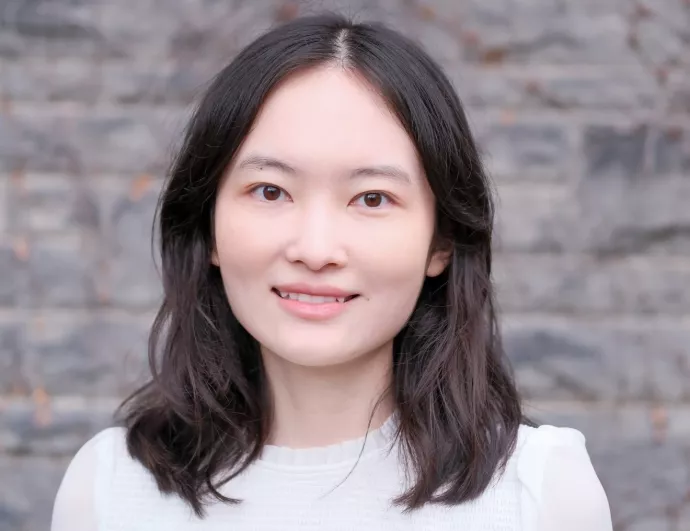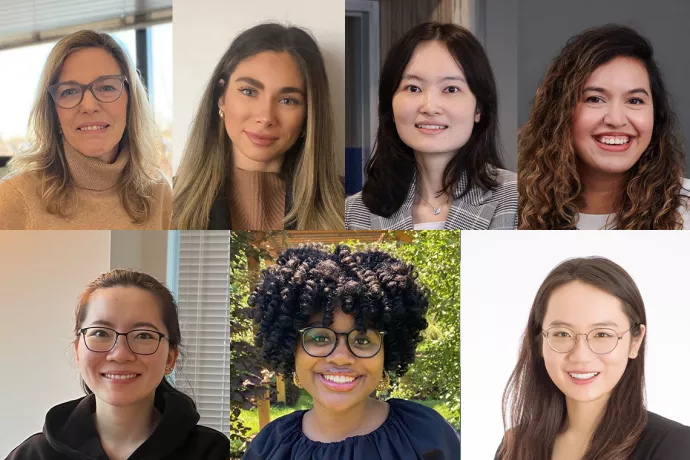
UTM psychologist wins Inlight fellowship to create online mental health interventions for fellow students
When Yiyi Wang left her home country of China to attend university in the U.S., she sometimes felt stressed and depressed in her new life. Finding mental health support on campus was hard, especially as an international student confronting language and stigma barriers. Now, nearly a decade later, Wang is a University of Toronto Mississauga doctoral student in psychology and the recipient of an inaugural Inlight Research Fellowship for her work developing online mental health interventions for postsecondary students.
“Our student fellowship award recipients are the future leaders of mental health research," says Kristin Cleverley, academic director of the Inlight Institutional Strategic Initiative (ISI) that granted the fellowship. The ISI recently held a kickoff event at Massey College to mark the start of Mental Health Week.
“The commitment to exploring innovative solutions to improve post-secondary student mental health, through the engagement of students directly in research, is the mission of Inlight and our main objective as an institutional strategic initiative at U of T,” Cleverley added.
Through her research in professor Norman Farb’s Regulatory and Affective Dynamics (RAD) Lab, which explores how individuals’ responses to different emotions influences their wellbeing, Wang has created mental health training and support programs that are designed to be delivered through websites, apps and AI chatbots. Testing in nearly 800 U of T students has shown that the interventions are easy to access, cost-effective, simple to use and effective in improving students’ moods and coping strategies.
“I learned about emotion regulation strategies such as mindfulness during my undergraduate degree, and they helped me manage my mental health,” says Wang. Since joining Farb’s lab, her research has looked at how mindfulness can improve mental health by increasing present moment awareness, acceptance of what’s happening in the moment and the ability to reappraise life events in a more positive way.
While mindfulness programs are available in most communities, the anonymity afforded by an online format is attractive for many students, says Wang. “Those from certain cultural backgrounds, such as my own, often don’t want to go for support in person and let other people know that we have those kinds of challenges.”
With funding from the Inlight fellowship, Wang is enhancing the AI chatbot platform she developed by embedding ChatGPT, a tool that enables more human-like interactions. Based on students’ responses to specific questions, the chatbot will guide students to resources such as videos on mindfulness practice. She’s also creating a personalized online “Wellness Buddy” where students can track their moods, stress level levels and coping skills on a daily basis and view the patterns over time. “Our lab’s research has shown that this habit of checking in every day to monitor these factors can help students maintain their wellbeing,” she says. Both of these tools will be available in multiple languages.
Wang’s online tools refer students to mental health resources on campus if their responses indicate serious symptoms, and they’re not meant to replace in-person treatment. “The virtual interventions can complement therapy, or build stronger emotion regulation skills in those with generally good mental health,” she says.
Wang ensures that the programs meet students’ specific mental health needs by consulting with them throughout her development process. “I want to move away from the one-size-fits-all approach of many online supports, because university students have unique concerns that set them apart from the general population,” she says, citing factors such as academic pressures and financial burdens.
To enrich the user experience in her programs, Wang is constantly expanding her programming skills. Currently, she’s learning how to incorporate mental health resources into role playing video games, though it’s not part of her doctoral work. “I’d love to bring gamification to mental health interventions one day,” she says. “It would be just another great way to reach students with evidence-based resources that can help them be well.”
Wang is one of seven students across the three U of T campuses to receive the inaugural Inlight Research Fellowships in support of mental health research.
Read about all the Inlight fellowship recipients

